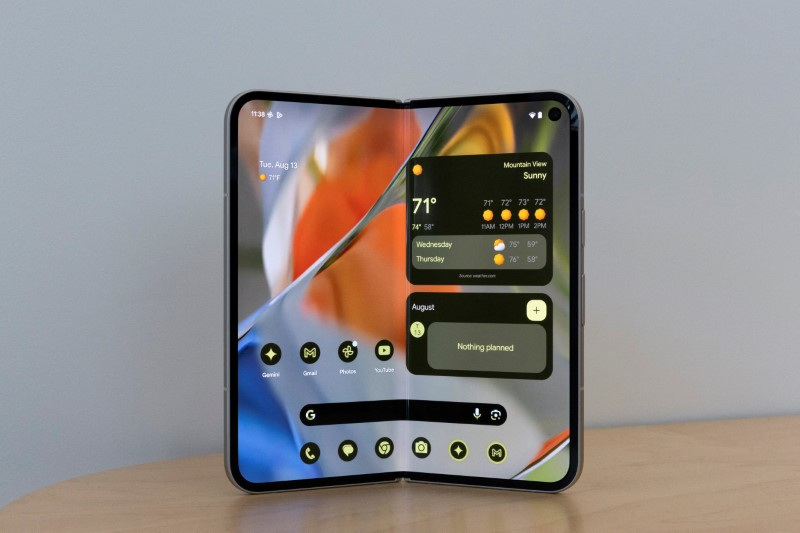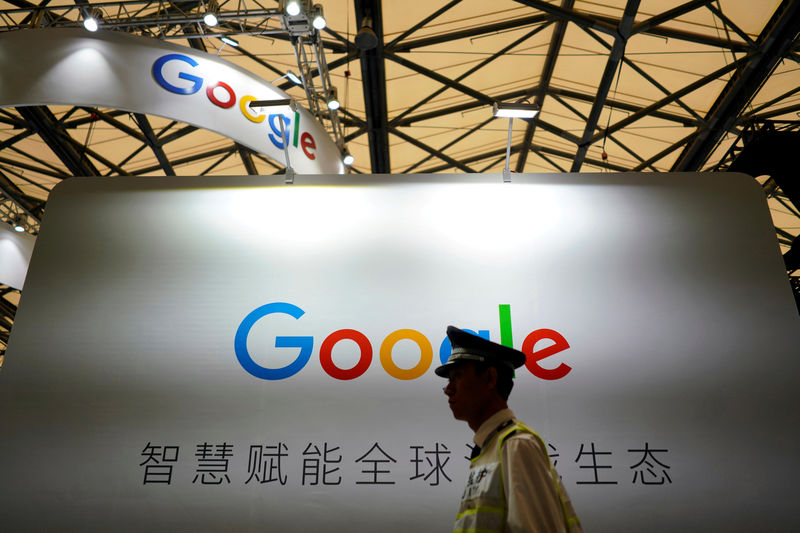By Kenrick Cai and Max A. Cherney
MOUNTAIN VIEW, Calif. – Alphabet’s Google (NASDAQ:) on Tuesday unveiled a line of new Pixel smartphones with deeper integrations of its artificial intelligence technology as it races to integrate AI into its hardware.
The upgrades include a Pixel-only feature that allows users to search for information stored in screenshots. Android users can now also overlay Gemini, Google’s chatbot, on top of another app to answer questions or generate content.
“There’s been so much promise, so much future promise, and not enough real-world help when it comes to AI. That’s why we’re getting real today,” said Rick Osterloh, Google’s Senior Vice President of Devices and Services. .
“We are fully in the Gemini era,” he told engineers, executives, analysts and media attending the larger-than-usual event at Alphabet’s Bay View campus in Mountain View, California.
The event bucked another tradition: The latest versions of its Pixel smartphones were announced in the summer instead of the fall, as Google had done with every iteration of the device since its launch in 2016.
“I’ve been to many Google events and this was not only one of the most comprehensive, but also one of the most complete,” said Avi Greengart, principal analyst at Techsponential. He said Google has shown that it is at the forefront of AI.
The earlier timing of the event is Google’s latest attempt to keep up with rivals in injecting AI features into its consumer-facing products and comes ahead of Apple’s (NASDAQ:) planned launch of a new iPhone in September.
In June, Apple announced that devices, including the latest version of iPhones, would receive upgrades that include “Apple Intelligence,” a suite of generative AI-powered features within native applications, and an integration with ChatGPT, the chatbot developed by the company. Microsoft supported OpenAI.
Google employees showed off several live demos of new Gemini features, such as a voice calling feature, although an attempt to use Gemini to compare an image of a concert poster with the calendar app took three attempts and two devices to succeed work.
The Pixel 9, the base model with a 6.3-inch screen, will be available for a starting price of $799, which is $100 more than the previous model. This and the 6.8-inch Pixel 9 Pro XL will ship later in August, a company spokesperson said. The Pixel 9 Pro, which comes with additional features like a better camera, and the foldable Pixel 9 Pro Fold, will ship in September.
The new gadgets can be reserved from Tuesday.
‘MANAGE MY LIFE BETTER’
“The two things (consumers) are looking at AI right now are organization – and that’s in terms of communications, scheduling, managing my life better than I can – and the other is content creation,” says IDC- analyst Linn. Huang. “I think Google has achieved both.”
According to IDC, Google will have a market share of less than 1% of global smartphone shipments as of the second quarter of 2024. It lags far behind Samsung’s market share of 18.9% and Apple’s 15.8%, partly because Google has entered fewer markets and is focusing on higher price segments.
In the United States, Google is the fourth largest smartphone maker with a share of 4.5%.
The Pixel line has also allowed Google to show progress and boost the developer ecosystem around its Android operating system, which is used by device makers like Samsung (KS:). Android is installed on more than 80% of smartphones worldwide.
Android represents one of the front lines where Google battles competitors to integrate AI in a way that consumers will use. In May, it debuted a slew of upgrades to core products like its search engine.
The company’s engineers redesigned the Pixel’s exterior and added camera upgrades, as well as Google’s new Tensor G4 chip.
Google also announced new versions of its smartwatch, the Pixel Watch 3 and Pixel Buds Pro 2 wireless earbuds, on Tuesday.

Google has also added a ‘Loss of Pulse’ feature to the new Pixel Watch. The feature uses algorithms to determine if a user’s heart has stopped and can contact emergency services. The feature will be available in the United Kingdom and the European Union.
Also on Tuesday, Google and Peloton (NASDAQ:), the fitness company known for its exercise bike, announced a content partnership that would give subscribers of Google’s Fitbit (NYSE:) Premium service access to a library of Peloton’s workout classes.


